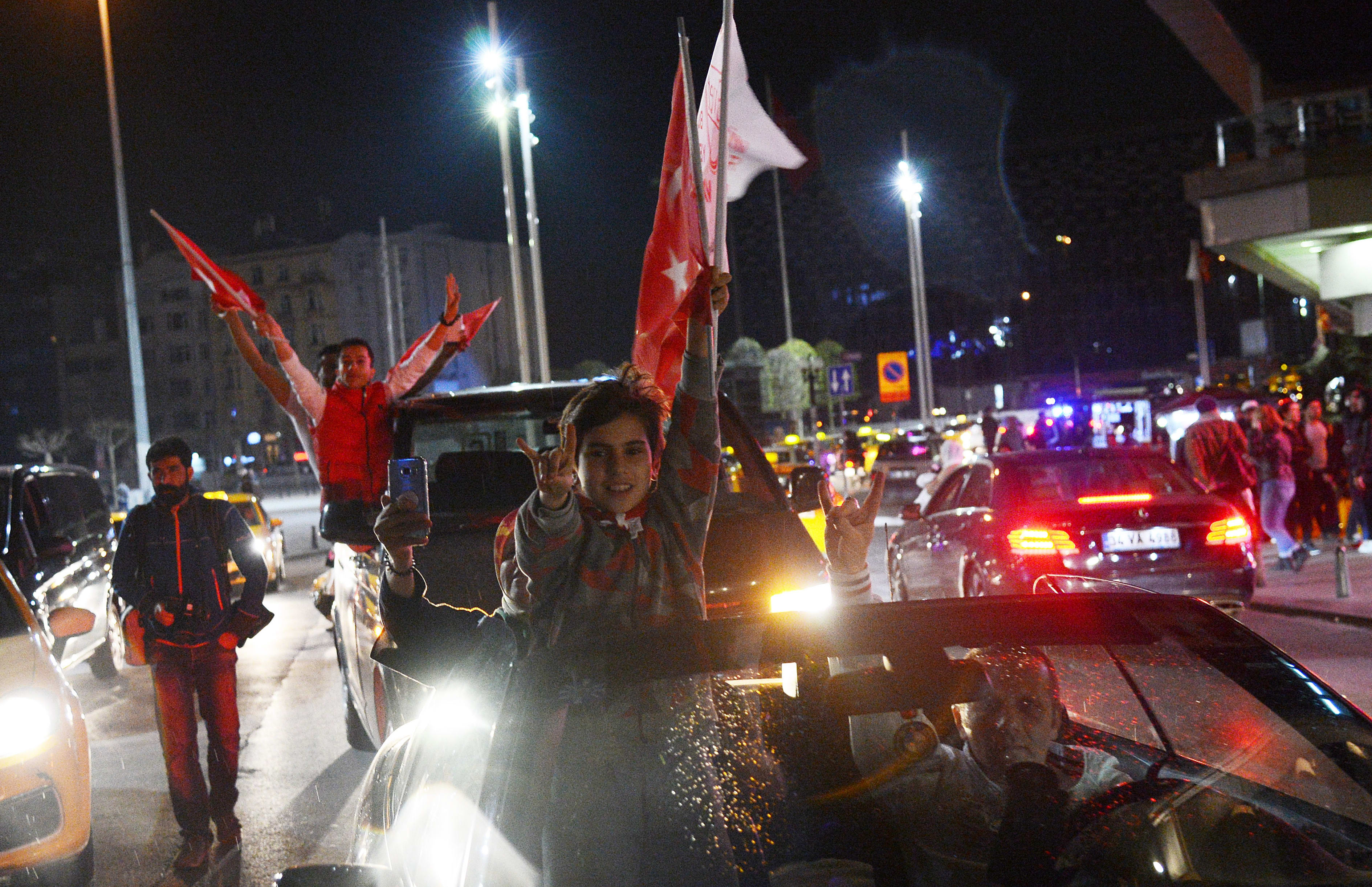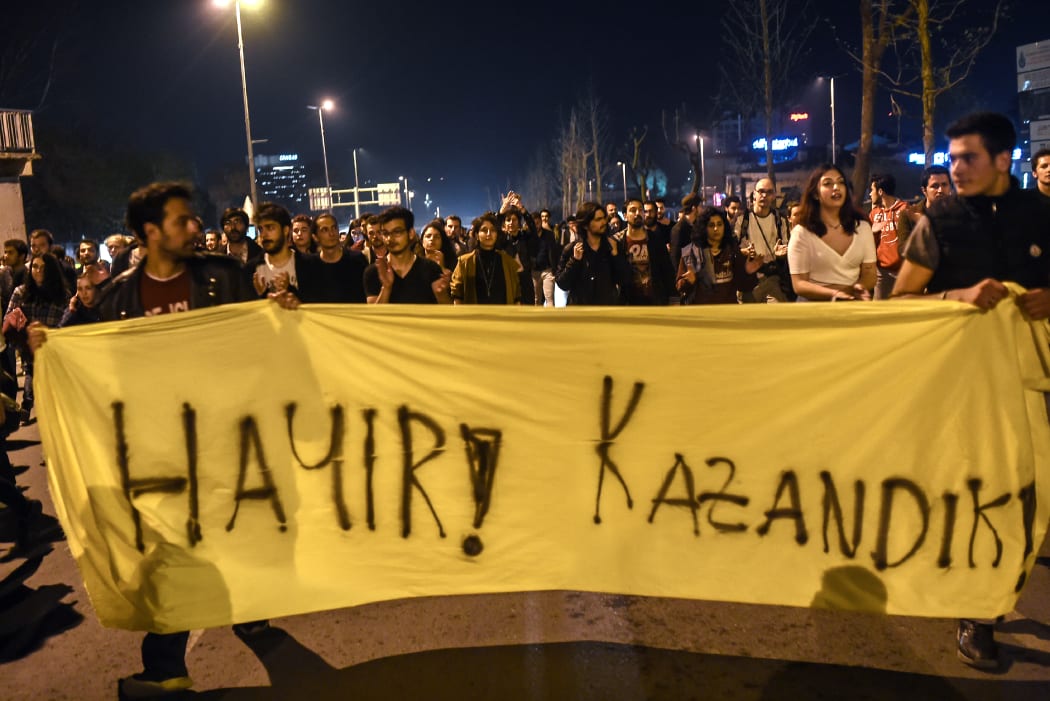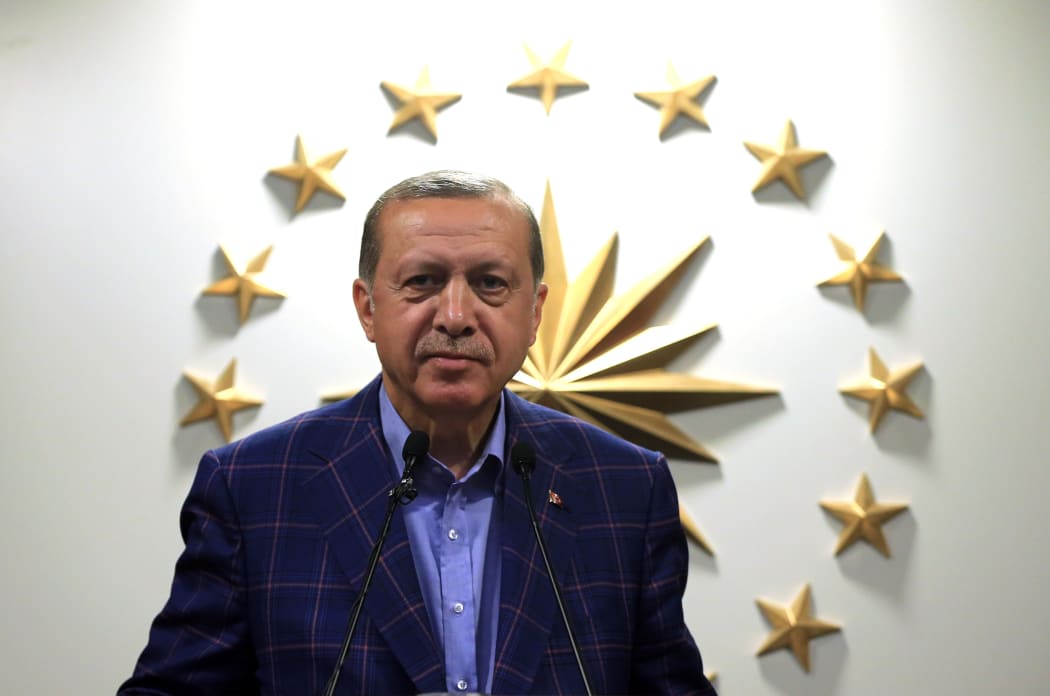Turkish President Tayyip Erdogan has made it very clear that there are no plans to dissolve parliament and call for early elections before the 2019 polls, Deputy Prime Minister Mehmet Simsek told Reuters in an interview on Monday.

Supporters of Turkish President Tayyip Erdogan celebrate victory in the Turkey's constitutional referendum. Photo: AFP
President Recep Tayyip Erdogan's push for an executive presidency succeeded with just over 51 percent of the vote.
Mr Simsek said relations with the European Union would be on areas of common interest, adding that some of the "noise" between Ankara and Europe should die down after the European elections cycle.
"Yesterday, the president made it very clear that elections will be held in November 2019," he said. "It is very clear. We have work to do."
The win was met with both celebrations and protests across Turkey, with the main opposition party CHP questioning the result's legitimacy citing irregularities in the electoral process.
The CHP is refusing to accept the Yes victory and is demanding a recount of 60 percent of the votes, criticising a decision to pass unstamped ballot papers as valid unless proven otherwise.
Three of Turkey's biggest cities - Istanbul, Ankara and Izmir - all voted "No" to the constitutional changes.
What are the changes?
- The president will have a five-year tenure, for a maximum of two terms
- The president will be able to directly appoint top public officials, including ministers
- He will also be able to assign one or several vice-presidents
- The job of prime minister, currently held by Binali Yildirim, will be scrapped
- The president will have power to intervene in the judiciary, which Mr Erdogan has accused of being influenced by Fethullah Gulen, the Pennsylvania-based preacher he blames for a failed coup in July
- The president will decide whether or not to impose a state of emergency
However, the High Electoral Board (YSK) chairman Sadi Guven said the ballots and envelopes provided for the referendum were issued by the board and were valid.
Mr Guven told reporters in Ankara the last-minute decision by the board to allow unstamped ballots in the referendum was not unprecedented as the government had previously permitted such a move.
Following the vote on Sunday, Mr Guven said the decision was made before results were entered into the system, and that members of the ruling AK Party and the main opposition were present at almost all polling stations and signed off on reports.
Opposition supporters took to the streets of Istanbul to bang pots and pans - a traditional form of protest - in a series of noisy demonstrations.

Supporters of 'No' gather in Istanbul to protest following results of the national referendum on constitutional changes in Turkey. Photo: AFP
Meanwhile, flag-waving supporters of Mr Erdogan celebrated as their president praised them for their "historic decision" that could keep him in office until 2029.
Separately, three people were shot dead near a polling station in the south-eastern province of Diyarbakir, reportedly during a dispute over how they were voting.
The president also said the country could hold a referendum on bringing back the death penalty - a move that would end Turkey's EU negotiations.
Responding to Sunday's result, the European Commission issued a statement urging Mr Erdogan to respect the closeness of the vote and to "seek the broadest possible national consensus" when considering the far-reaching implications of the constitutional amendments.
Deputy Prime Minister Veysi Kaynak admitted the "Yes" vote had been lower than expected.
Many Turks already fear growing authoritarianism in their country, where tens of thousands of people have been arrested, and at least 100,000 sacked or suspended from their jobs, since a coup attempt last July.
The campaign unfolded under a state of emergency imposed in the wake of a failed coup.

Turkish President Recep Tayyip Erdogan gives a speech during a press conference as the unofficial preliminary results of Turkey’s constitutional referendum show "Yes" votes ahead of "No" votes, at Turkish Presidency's Huber Mansion in Istanbul. Photo: AFP
Mr Erdogan assumed the presidency, meant to be a largely ceremonial position, in 2014 after more than a decade as prime minister.
Under his rule, the middle class has ballooned and infrastructure has been modernised, while religious Turks have been empowered.
Relations with the EU, meanwhile, have deteriorated. Mr Erdogan sparred bitterly with European governments who banned rallies by his ministers in their countries during the referendum campaign. He called the bans "Nazi acts".
- BBC / Reuters






